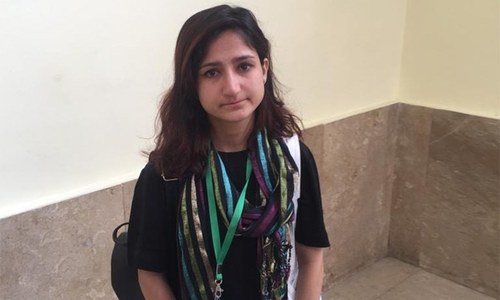ISLAMABAD: A parliamentary committee on Tuesday criticised the vague policy of the National Database and Registration Authority (Nadra) about the registration of orphans and children with unknown parentage.
During a meeting, the Senate Special Committee on the Issue of Increasing Incidents of Child Abuse was informed that Nadra randomly picked names of fathers for such children from its system without the consent of the persons concerned.
The meeting was held at Parliament House with Senator Nuzhat Sadiq in the chair.
Father’s name of an orphan or child with unknown parentage is randomly picked from system, Nadra officials tell Senate body
Nadra officials informed the committee that while registering such children the system selected the name of a citizen at random to whose family tree the child was added.
In reply to a question, the officials told the members that this was being done without informing the family already registered with Nadra.
Senator Sitara Ayaz said selecting names at random was a major loophole in the working of Nadra and that the issue must be addressed.
Senator Raza Rabbani said adding unknown children to a family without informing its head could lead to major issues with respect to succession and inheritance.
After the meeting, Senator Ayaz told Dawn that the confused policy of Nadra could create succession issues. She said whenever family members would know that there was another person in their family, it would be a complex issue for both the family and the person who was added to the family tree.
“Since the briefing by Nadra was incomplete and unclear, we have decided to take up the matter again in the next meeting where Nadra will brief the committee in detail.” She said the percentage of registration of orphan and children with unknown parentage was very low as so far only a few thousands such children have been registered with Nadra.
But an official of Nadra told Dawn that there was no loophole in the policy.
“Randomly, we only allot father’s name from our database but never issue identity card numbers to the children. So without this (ID card numbers) one cannot claim any rights,” he said.
During the meeting, while discussing growing incidents of child abuses in the country, the convener of the committee expressed displeasure over the lack of preparedness and coordination between different agencies for the protection of child rights.
It was recommended that all agencies work collectively to save time and that a subcommittee be formed to sort out the overlapping of efforts.
Secretary Ministry of Human Rights Rabia Javaria Agha briefed the committee about the steps being taken to address the issue of child abuse and challenges.
Quoting Article 25-A of the Constitution, she said the government was to provide mandatory education for every child up to the age of 16 years. She said according to Article 11-C of the Constitution, the age limit had been shortened to 14 years so there was contradiction on the definition of a child.
She said children required an identity and basic birth registrations were just 30pc in Pakistan.
Children who have no birth registrations cannot be found and in case of abuse cannot have their complaints registered.
The secretary praised Unicef for working towards birth registrations which was necessary for acknowledging a child’s identity.
The chief of the Unicef Child Protection Programme, Silvia Pasti, briefed the committee on the programme and said Unicef took into consideration the rights of the child.
She said the main issue faced by Unicef was lack of evidence of abuse that children faced in the country. She said the major objective of the programme was to support the government to generate evidence which would assist policy making regarding the issue. She said under the programme Unicef planned to conduct a survey in all provinces on violence against children and their economic exploitation.
Published in Dawn, November 7th, 2018













































